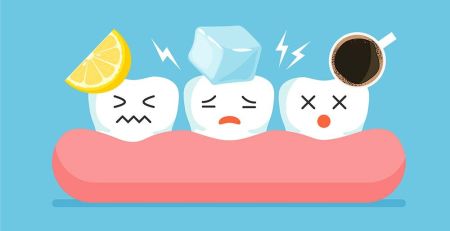Table of Contents
Calcium is a crucial mineral that plays a vital role in maintaining healthy teeth and bones. Insufficient calcium intake can lead to various health issues, including weakened teeth and increased dental risk.
Effects of Calcium Deficiency on Tooth Development
Research studies, such as the one conducted by Adegboye et al. (2012) [1], have demonstrated that inadequate calcium levels during tooth development can result in improper mineralisation, leading to weaker tooth structure and an increased risk of tooth decay. Calcium deficiency can hinder enamel formation, the protective outer layer of teeth, making them more vulnerable to cavities.
Calcium deficiency can significantly impact tooth development, leading to various dental problems.
Below are some of the effects of calcium deficiency on tooth development:
- Improper Mineralisation: Calcium is a key mineral for the proper mineralisation and strengthening of teeth. Insufficient calcium intake during tooth development can result in the inappropriate formation of enamel, the outer protective layer of the teeth. This can weaken the tooth structure, making them more prone to cavities and decay.
- Delayed Tooth Eruption: Calcium deficiency may delay the eruption of primary and permanent teeth. This delay can disrupt the typical sequence of tooth eruption, potentially causing orthodontic issues and misalignment of the teeth.
- Increased Risk of Tooth Decay: The teeth become more susceptible to tooth decay without adequate calcium. Calcium plays a vital role in maintaining the integrity of tooth enamel. Insufficient calcium levels can weaken the enamel, making it easier for bacteria and acids to penetrate and cause cavities.
- Weakened Tooth Structure: Calcium deficiency can compromise teeth’s overall strength and density, making fragile teeth more prone to fractures and breakages.
- Poor Jawbone Development: Calcium deficiency during tooth development can affect the growth and development of the jawbone. The jawbone provides the necessary support for the teeth and affects their alignment. Insufficient calcium levels can lead to a weaker jawbone structure, potentially causing bite problems and misalignment.
Calcium deficiency is often related to overall nutritional imbalances. Therefore, maintaining a well-balanced diet that includes calcium-rich foods like dairy products, leafy greens, and fortified foods is essential for proper tooth development and oral health.
The link between Calcium Deficiency and Gum Disease
A study by Tezal et al. (2000) [2] found a correlation between low calcium intake and an increased risk of gum disease. Calcium deficiency can contribute to gum inflammation and periodontal disease, affecting the body’s ability to repair and maintain healthy gum tissue. Proper calcium levels support gum health and help prevent the progression of gum disease.
There is a significant link between calcium deficiency and gum disease, also known as periodontal disease. Calcium is an essential mineral for maintaining healthy teeth and gums, and its deficiency can contribute to the development and progression of gum disease.
Here are some key points regarding the connection between calcium deficiency and gum disease:
- Weakened Gum Tissue: Calcium plays a crucial role in maintaining the integrity and strength of gum tissue. Insufficient calcium levels can weaken the gums, making them more vulnerable to infection and damage caused by harmful bacteria.
- Impaired Immune Response: Calcium is involved in the proper functioning of the immune system. A calcium deficiency can impair the immune response, making it harder for the body to fight off bacterial infections in the gums. This can lead to the onset and progression of gum disease.
- Inflammation and Bleeding Gums: Calcium deficiency can contribute to gum inflammation and bleeding. Inadequate calcium levels can disrupt the balance of minerals in the oral cavity, leading to irritated and inflamed gums. This inflammation can cause the gums to bleed easily, especially during brushing or flossing.
- Delayed Healing: Calcium is necessary for proper wound healing, including gum tissue healing. In cases of calcium deficiency, the gums’ ability to repair and regenerate can be compromised. This can result in prolonged and ineffective healing, allowing gum disease to persist or worsen.
- Bone Loss: Gum disease can progress to affect the supporting structures of the teeth, including the jawbone. Calcium deficiency can further contribute to bone loss in the jaw, making the teeth more susceptible to mobility and potential tooth loss.
Maintaining adequate calcium levels through a balanced diet is crucial for oral health. Incorporating calcium-rich foods such as dairy products, leafy greens, and fortified foods can help support gum health and prevent calcium deficiency-related issues.
Calcium and Tooth Loss
Inadequate calcium intake has been associated with an increased risk of tooth loss. A study published in the Journal of Periodontology by Dietrich et al. (2007) [3] revealed that individuals with lower calcium levels were likelier to experience tooth loss over time. Calcium deficiency weakens the supporting structures of the teeth, including the jawbone, leading to tooth mobility and eventual loss.
Calcium is vital in maintaining strong and healthy teeth, and a calcium deficiency can contribute to tooth loss.
Detailed below are some key points regarding the link between calcium deficiency and tooth loss:
- Weakened Tooth Structure: Calcium, phosphorus, and other minerals are crucial components of tooth structure. Insufficient calcium levels can weaken tooth enamel, making teeth more prone to decay and damage. Over time, this can lead to tooth loss.
- Gum Disease and Tooth Loss: Calcium deficiency can contribute to the development and progression of gum disease, also known as periodontal disease. Gum disease can destroy the supporting structures of the teeth, including the gums and jawbone. Without a strong foundation, the teeth may become loose and eventually be lost.
- Impaired Healing: Calcium is essential for proper wound healing, including the healing of the tissues surrounding the teeth. Inadequate calcium levels can impair the body’s ability to repair and regenerate damaged oral tissues, increasing the risk of tooth loss.
- Osteoporosis and Tooth Loss: Osteoporosis, a condition characterised by decreased bone density, is often associated with calcium deficiency. When the jawbone loses density, it can lead to tooth loss as the teeth lack a stable foundation. Maintaining adequate calcium levels can help prevent or manage osteoporosis and reduce the risk of tooth loss.
- Overall Oral Health: Calcium deficiency can impact oral health, including the health of the gums, teeth, and supporting structures. Consuming a balanced diet rich in calcium is essential to support optimal oral health and reduce the risk of tooth loss.
It is worth noting that calcium alone is not the sole factor in preventing tooth loss. Good oral hygiene, regular dental check-ups, and a well-balanced diet that includes other essential nutrients are crucial for maintaining healthy teeth and preventing tooth loss.
Importance of Calcium for Overall Oral Health
Calcium is essential for teeth and overall oral health. It aids in maintaining proper pH balance in the mouth, neutralising harmful acids that can erode tooth enamel. Additionally, calcium plays a crucial role in muscle function, including the muscles involved in chewing and speaking.
Calcium is an essential mineral that is crucial in maintaining oral health.
Below are key reasons why calcium is necessary for your teeth and gums:
- Strong Tooth Enamel: Calcium is a vital component of tooth enamel, the outermost layer of your teeth. Enamel is the hardest substance in the human body and is a protective barrier against tooth decay and sensitivity. Adequate calcium intake helps develop and maintain strong enamel, preventing cavities and erosion.
- Healthy Jawbone: Calcium is necessary to grow and maintain a healthy jawbone. The jawbone provides support to your teeth, keeping them anchored in place. Sufficient calcium levels ensure that the jawbone remains strong and can support your teeth properly.
- Prevents Gum Disease: Calcium is also involved in gum health. It helps maintain the integrity of gum tissues and supports their ability to heal and fight infection. Insufficient calcium levels may increase the risk of gum disease, leading to swollen gums, gum recession, and even tooth loss.
- Essential for Tooth Development: Calcium is particularly important during tooth development in children. It is necessary for the formation and mineralisation of baby teeth and permanent teeth. Adequate calcium intake during childhood and adolescence ensures the proper growth and development of teeth.
- pH Balance in the Mouth: Calcium ions help maintain the pH balance in the mouth. They neutralise acids produced by oral bacteria, preventing tooth demineralisation and the formation of dental plaque. A balanced pH level promotes a healthier oral environment and reduces the risk of tooth decay.
To ensure you get enough calcium for optimal oral health, include calcium-rich foods like dairy products, leafy greens, almonds, and fortified foods. Additionally, maintain good oral hygiene practices, including regular brushing and flossing and visiting your dentist for check-ups and cleanings.
Remember, while calcium is essential, maintaining a well-rounded oral care routine and a balanced diet is key to overall oral health.
Conclusion
Maintaining adequate calcium levels is crucial for promoting strong and healthy teeth. Calcium deficiency can harm tooth development, increase the risk of gum disease, and contribute to tooth loss.
By prioritising a calcium-rich diet and considering calcium supplements when necessary, individuals can support their oral health and reduce the risk of dental problems associated with calcium deficiency.
References
- [1] Adegboye et al. (2012). Calcium, Vitamin D, and Oral Health.
- Balaji, S. M. (2015). Calcium Deficiency: An Early Pathological Process. Journal of Pharmacy and Bioallied Sciences
- [2] Tezal et al. (2000). The association between calcium intake and periodontal disease
- Nascimento, G. G., Leite, F. R. M., Vestergaard, P., & Scheutz, F. (2018). Association between calcium intake and the risk of periodontitis: a systematic review and meta-analysis. Journal of Periodontology
- Uwitonze, A. M., & Razzaque, M. S. (2018). Role of magnesium, calcium, and vitamin D in the development and maintenance of dental health
- [3] Dietrich et al. (2007). Calcium supplementation and periodontal health in the VA Dental Longitudinal Study
- Nascimento, G. G., Leite, F. R. M., Vestergaard, P., & Scheutz, F. (2018). Association between calcium intake and the risk of periodontitis: a systematic review and meta-analysis. Journal of Periodontology
- Uwitonze, A. M., & Razzaque, M. S. (2018). Role of magnesium, calcium, and vitamin D in the development and maintenance of dental health
- Mehta, A. B., Kumari, R., & Gupta, R. (2019). Study to correlate tooth loss and osteoporosis in postmenopausal women. Journal of Mid-life Health
Disclaimer: This blog is intended to offer general information and education only. It is not a substitute for professional advice, diagnosis, or treatment from a licensed dentist, doctor, or healthcare provider. Please consult a qualified professional if you have questions or concerns about your dental or medical health. Do not ignore or postpone seeking medical advice based on content from this site. Amazing Smiles is not liable for any actions based on the information provided here.





